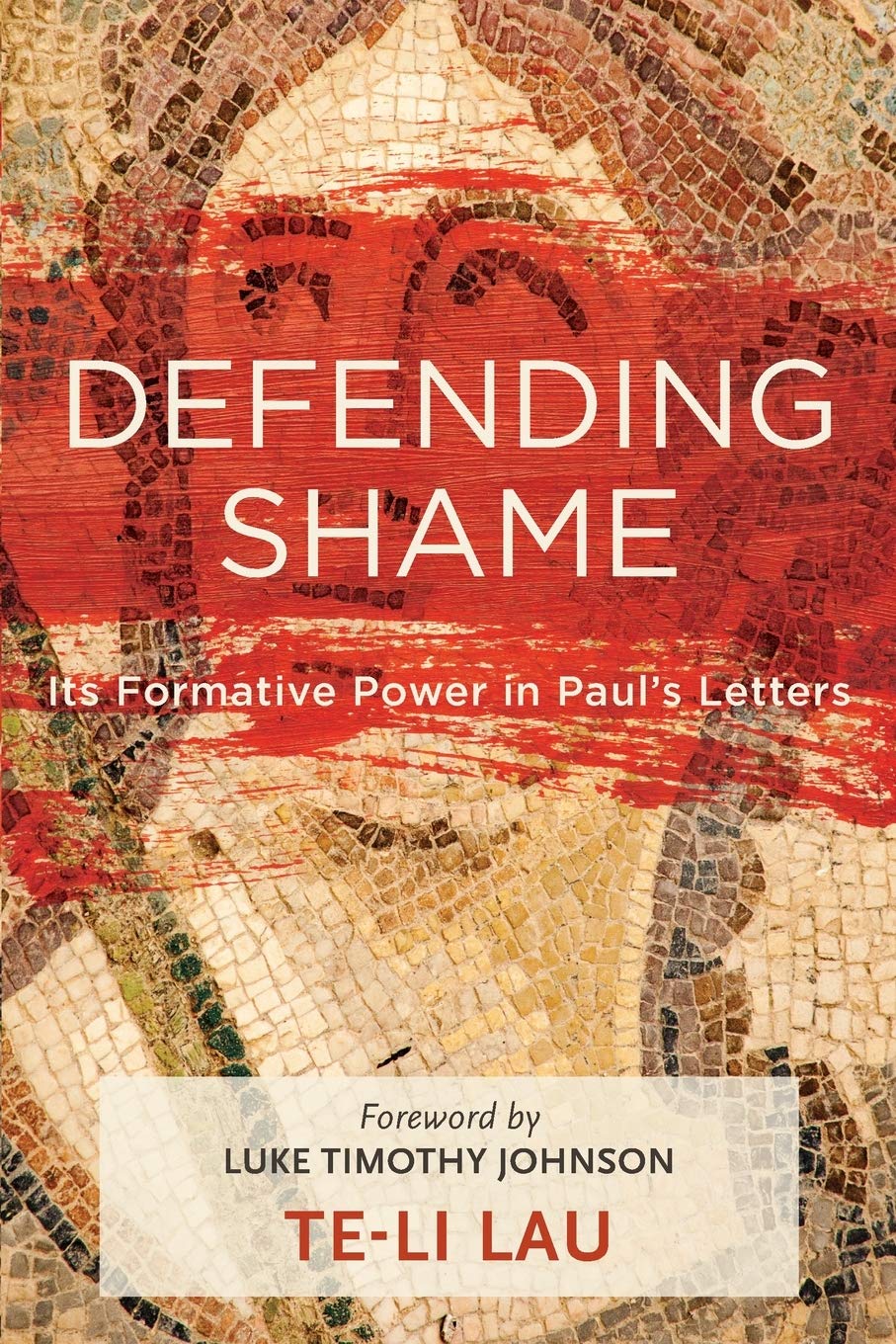Te-Li Lau. Defending Shame: Its Formative Power in Paul’s Letters. Grand Rapids: Baker Academic, 2020. 288 pages. $27.99.
When picking up a volume that seeks to analyze a biblical approach to “shame,” one might not expect to find a work that is (a) fluent in Hebrew, Greek, English, and Chinese, (b) competent in the disciplines of Pauline studies, philosophy, and ethics, and (c) conversant with the moral musings of the #MeToo movement. Nevertheless, such is what appears in Te-Li Lau’s Defending Shame. Lau, associate professor of New Testament at Trinity Evangelical Divinity School, defines shame as “the painful emotion that arises from an awareness that one has fallen short of some standard, ideal, or goal” (29). Lau argues that sin and shame are inseparably bound together in a post-Fall context (66). In opposition to the modern-day notion of shame being exclusively negative in its effect, Lau argues that the apostle Paul employs shame as a positive ethical tool to conform his communities to the likeness of Christ (10, 232).
Part One of Lau’s book presents ancient approaches to the idea of “shame” as found in Greco-Roman sources such as Socrates, Aristotle, and Stoicism, as well as in Jewish texts of the Old Testament and Jewish intertestamental literature. Part Two unpacks Pauline texts dealing with the theme of shame in the letters of Galatians, 1 Corinthians, Philippians, and Philemon, as Lau analyzes Paul’s use of shame as an ethical strategy unto Christlikeness. Part Three compares Paul’s posture toward shame with contemporary Chinese views and with modern-day America’s online “shaming culture.” Through the Holy Spirit’s power, Christians are to seek to honor God in their lives and to avoid his divine reproach, using the instrument of shame—ranging from mild rebuke to excommunication—as a tactic to guide Christian behavior (159, 232–33). Yet ironically, in doing so, believers might avoid shame before God (and God’s people) only to incur the undeserved shame of a hostile world around them.
The strongest aspect of Lau’s book is his dismantling of twenty-first century America’s faulty assumption that shame is always a demeaning tactic that results in loss to an individual’s well-being. Lau flips that notion on its head as he rightly contends that shame, on the contrary, is designed by God as an instrument for moral formation. Lau rightly asserts, “The absence of shame is not, as some wrongly declare, self-esteem; it is shamelessness” (231, emphasis added). In other words, undergoing some sort of public humiliation is not a misfortune if it becomes a means to growth in one’s character; rather, the real tragedy takes place when a person fails to recognize any sense of shame at all. In contrast to the modern assumption that praise of an individual is beneficial while shame is always detrimental, Lau notes that a human being’s transgression of God’s moral requirements should necessarily lead to discomfort. Thus, the apostle Paul at times uses shame as an instrument to highlight past sin in a backward-pointing way (121–22), as when he urges the Corinthian Christians to consider the unfavorable outcome of those who failed to examine themselves before partaking of the Lord’s Supper (1 Cor 11:31). On other occasions Paul employs shame in a forward-pointing way (143), as when he insinuates that Philemon will experience shame if he fails to refresh Paul’s heart by sending Onesimus back to him (Phlm 20–21).
A second aspect of Lau’s work that deserves commendation is the strong connection he forges between Christ’s shame—an undeserved shame—and the believer’s shame due to union with Christ. Lau locates the uniqueness of the Christian view of shame in the fact that Christ is the ultimate one who bears the disrepute of sinners on the cross and endures the public humiliation of men, even while being honored by the Father (126–29). It is through undeserved shame, ironically, that Christ purchases redemption for his people. Sometimes exaltation in the sight of God means humiliation in the eyes of the world as best exemplified in the cross of Jesus Christ (126–29; Phil 2:6–11). The believer does not merely imitate Christ and follow him on his despised path, even though emulation does, of course, take place (129–31). More so, however, the believer lives a life of “shameful” servanthood because such is his very identity. The sufferings of Christ flow into the life of the believer. Paradoxically, Lau shows that it is not just deserved shame that has a role in moral formation, such as that which results from a failure to uphold a standard of godliness within a community. Unjustified shame, too, such as that of worldly scorn, also has a sanctifying role in conforming the Christian to Christlikeness.
One point of critique of Lau’s book is that his chief operating definition of shame is too subjective, being mainly an emotional response, a “painful emotion” (29). While shame often does have a subjective element to it, the Bible depicts shame as a state of being publicly disgraced or suffering a loss of status before God whether one “feels” that way or not (cf. 1 Cor 5:1–13). An individual, like the unrepentant Corinthian church member, might feel proud of his actions even while he objectively is out of good standing with God and his faith community. But even if this man does not emotionally perceive his actual spiritual state, he nevertheless is in a place of indignity and disgrace—concretely so. Lau needs to draw out this important point more clearly. Although Lau makes occasional statements about the objectivity of shame (13, 62, 153, etc.), his formal definition fails to include this vital aspect. The objective facet of shame seems to be underplayed throughout the book and needs a full synthesized treatment.
All in all, the breadth of Lau’s scholarship is remarkable, as he seamlessly quotes from the likes of pre-Socratic Greek philosophers (33–36), the Jewish scribe ben Sira (80–84), and Chinese sages Confucius and Mencius (188–99), among others. Writing in a manner that is both scholarly and engaging, Lau displays courage as he pushes against the modern notion of shame as a tactic that necessarily demeans and demoralizes (222–30). Instead, the author argues that the painful emotion of having “fallen short” is often necessary for moral transformation. The author’s focus on the ethical benefit of employing shame, as found in Paul’s moral teaching, draws attention to a much-neglected theme in Pauline studies, especially in the Western world. Lau’s book also provides a needed corrective for a more biblically-based pastoral practice.
Jeff Moore
Grace Bible Theological Seminary




